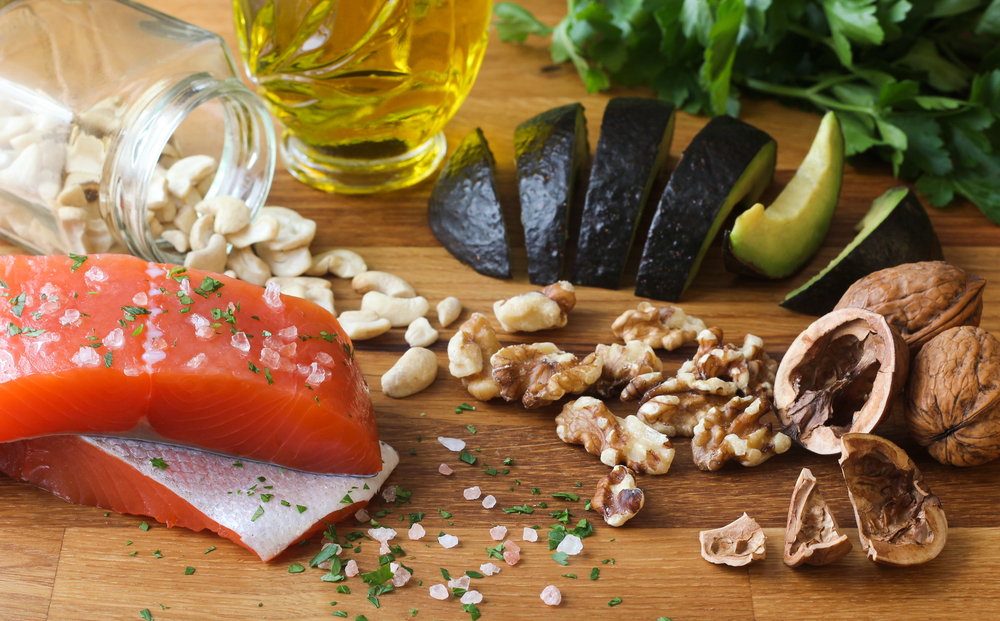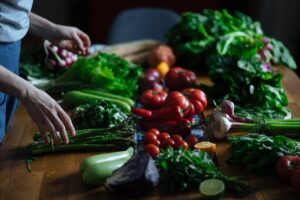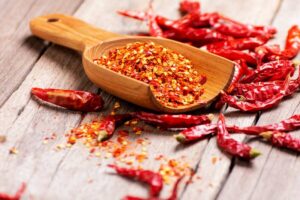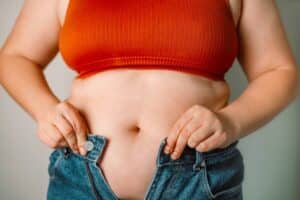Good news! You can stop listening to all that bad nutrition advice now!
In the labyrinth of dietary advice, we often find ourselves entangled in a web of nutrition misconceptions. So Nutrition In USA is taking you on an enlightening journey! We wish to unravel the truths buried beneath the many layers of misguided information.
Brace yourself for a revelation as we delve into a compilation of bad nutrition advice that dietitians fervently wish you’d stop believing. Contrary to popular belief, not all nutritional guidance is created equal.
We aim to shed some light on the shadows of misinformation, offering a compass for navigating the often confusing landscape of dietary guidance.
Prepare to challenge preconceived notions and discard misunderstood wisdom as we confront the bad nutrition advice that has lingered for far too long. Join us in this transformative narrative where 9 myths are dispelled!

Should ALL fat REALLY be avoided?
In the past, the food industry, health experts, and the media indicated that a diet with low fat intake would prevent issues like heart disease or obesity. But this is just plain bad nutrition advice.
But, an assistant professor of medicine at the University of California, Center for Human Nutrition, said that “the vilification of fats” led many people and food manufacturers to substitute calories from fat with calories from refined carbs, including added sugar and white flour.
Rather than helping the nation stay slim, the rates of overweight and obesity significantly went up. According to dieticians, not all fats should be dodged.
While certain fats can raise the risk of stroke or heart disease, healthy fats help reduce that risk. Good fats are also essential for producing important hormones, providing energy, supporting cell function, and aiding in the absorption of certain nutrients.
Should you REALLY be using unrefined sugar rather than the ordinary kind?
This is an age-old question, isn’t it? Well, we’ve got the verdict once and for all on this nutrition myth. Here’s what dieticians have to say: Sugar is sugar! It doesn’t matter what you name it.
Honey, maple syrup, agave, coconut sugar, cane juice, juice concentrate, and many others are all code words for… SUGAR.
You might benefit from sparse amounts of a few extra minerals or vitamins in certain sweeteners. But make no mistake, they’re all just added sugars. So if anyone tells you to substitute one for the other, it’s just bad nutrition advice.
And they all contribute to the recommended daily limit on added sugars in one’s diet. The American Heart Association recommends a cap of 24g per day for women and 36g for men.
Rather than getting tiny amounts of nutrients from maple syrup, cling to the targets for added sugar from another source and meet your nutritional needs with healthful whole foods.
Can you REALLY lose weight by juicing?
Juicing to lose weight is another example of bad nutrition advice. According to a nutritionist in New York City, there are better roads to lasting weight loss. She explains that drinking just juice would leave you lacking the calories your body needs to function optimally.
You’d also get mostly carbs and lack the healthy fats and protein your body needs daily. Protein and healthy fats help keep you full. So you’d likely be starving on a diet like this!
It might not sound as great as juicing, but if you want to lose weight, try eating healthful foods instead. Dieticians recommend eating a balanced diet of vegetables and fruit, whole grains, lean protein like salmon and tofu, and healthy fats, including olive oil and avocado.
You should also cut calories by limiting the foods that don’t have to be in your diet. This includes alcohol.
Can you get breast cancer from eating too many soy-based foods?
Even though animal studies discovered that high doses of plant estrogens in soy, named isoflavones, facilitate breast tumor cell growth, a professor at the Harvard T.H. Chan School of Public Health stated that this relationship hasn’t been confirmed in human studies.
Soy foods are also chock-full of beneficial nutrients related to decreased heart disease risk, including high-quality fiber, protein, vitamins, and minerals. The research is evident: You can feel confident including soy foods in your diet.

Do you HAVE to drink 8 glasses of water a day?
Of course, dietitians are big supporters of proper hydration, both for working out and in your everyday life. It’s the bad nutrition advice they don’t like. Everyone’s different in their age, gender, size, activity level, and health status.
So, there isn’t one single recommendation to suit everyone’s needs. Instead, they offer the following tip for determining your fluid status. Check your urine color and output. You’re adequately hydrated if there’s a sizable amount of pale yellow.
If you only put out a small amount of dark-colored urine, chances are that you’re dehydrated. The goal is to drink enough fluid until your urine is consistently pale yellow. That’s when you know you’ve met your fluid needs.
Is fresh produce REALLY that much healthier than canned, frozen, or dried alternatives?
There might be a longstanding belief that “fresh is best,” but that’s just bad nutrition advice. Research indicates that canned, frozen, and dried fruits and veggies can provide just as much nutrition as the fresh kind.
They can also be a huge money saver and an easy way to ensure there are always fruits and vegetables in your home, says the outgoing director of nutrition security and health equity at the US Department of Agriculture.
Nevertheless, dieticians recommend reading nutrition labels to scan for ingredients like saturated fats, added sugars, and sodium to find products with minimal additives.
Are plant-based milk THAT much healthier than dairy milk?
Many people think that plant-based milks, including those made from oats, rice, almonds, and hemp, provide more nutrition than cow’s milk. But it’s simply not true, and it’s bad nutrition advice, according to a professor of sustainable food systems at ASU.
Even though plant-based drinks can have varying levels of nutrition, many have more added ingredients that may contribute to poor health.
Are egg yolks THAT bad for you?
This bad nutrition advice seems to persist for dieters trying to cut down on calories and fat. But according to nutritionists, cutting out the yolks is a big nutrition myth and no-no.
It turns out they’re full of fatty acids, vitamins A and D, and antioxidants like zeaxanthin and lutein, to name a few. To get the most nutrition out of your breakfast meal, you’re better off eating the whole egg.

Does pasta REALLY make you gain weight?
Just in case you weren’t convinced enough that carbs can be okay, nutritionist Keri Gans, the author of The Small Change Diet, offers this little gem: “No one food can make you gain weight.” It’s all about the prep and portion size.
A large bowl of fettuccine alfredo, for instance, is definitely going to have a lot of calories. But prepared differently, you have a healthy meal on your hands.
Here’s what we mean: a one-cup serving of pasta that’s sauteed in olive oil with lots of veggies like broccoli, spinach, and artichokes, with grilled shrimp is delicious AND nutritious.
You don’t have to listen to all that bad nutrition advice and live without pasta. But find some other ways to love it, as dieticians recommend.
Did you know about any of the things we noted in this article regarding bad nutrition advice? Let us know in the comments section below.
And in the meantime, Nutrition In USA has much more to offer its readers. For instance, did you know about these 4 Delightful Cancer-Fighting Breakfasts to Prevent This Disease?







